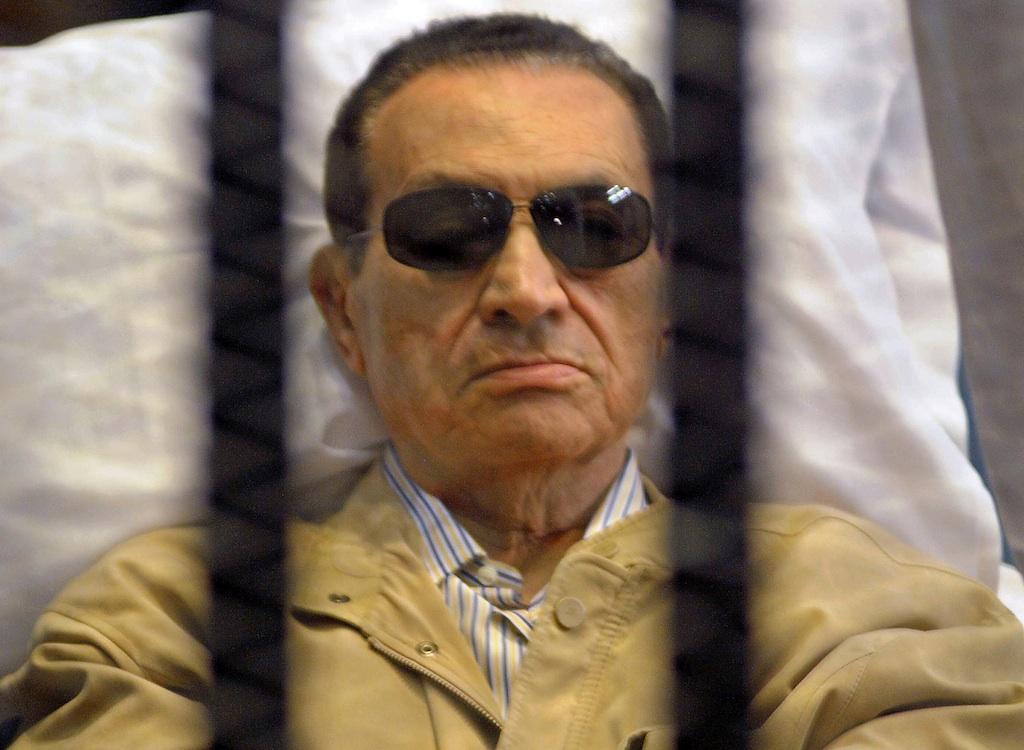What is clinically dead?
Ousted Egyptian president Hosni Mubarak sits inside a cage in a courtroom during his verdict hearing in Cairo on June 2, 2012. A judge sentenced Mubarak to life in prison after convicting him of involvement in the murder of protesters during the uprising that ousted him last year.
Earlier this evening the state-run Mena News Agency announced that Hosni Mubarak, the ousted leader of Egypt, was "clinically dead."
This does not mean Mubarak has been pronounced dead.
According to the Sudden Cardiac Arrest Foundation, clinical death is the medical term for cessation of blood circulation and breathing, which are two necessary criteria to sustain life. This occurs when the heart stops beating in a regular rhythm and is also known as cardiac arrest. The term is also sometimes used in resuscitation research.
More from GlobalPost: Hosni Mubarak 'clinically dead,' says Egypt state media
Mubarak's "heart stopped and he was treated with a defibrillator," the agency reported, according to MSN. "Sources said he was likely to be moved to a military hospital within hours if his health continued to deteriorate."
While most of the human body can survive several minutes, if not hours, without blood circulation, the brain cannot. Without treatment full recovery of the brain after more than 3 minutes of clinical death rare, according to Cerebral Resuscitation After Cardiac Arrest.
If clinical death occurs in a hospital, a code blue is called indicating a patient has suffered cardiac arrest, according to Medicine Net. CPR will be initiated or a defibrillator will be used. This will continue until either the heart is restarted, or the physician decides the effort is futile.
More from GlobalPost: Is Hosni Mubarak dead? Let's ask Twitter
